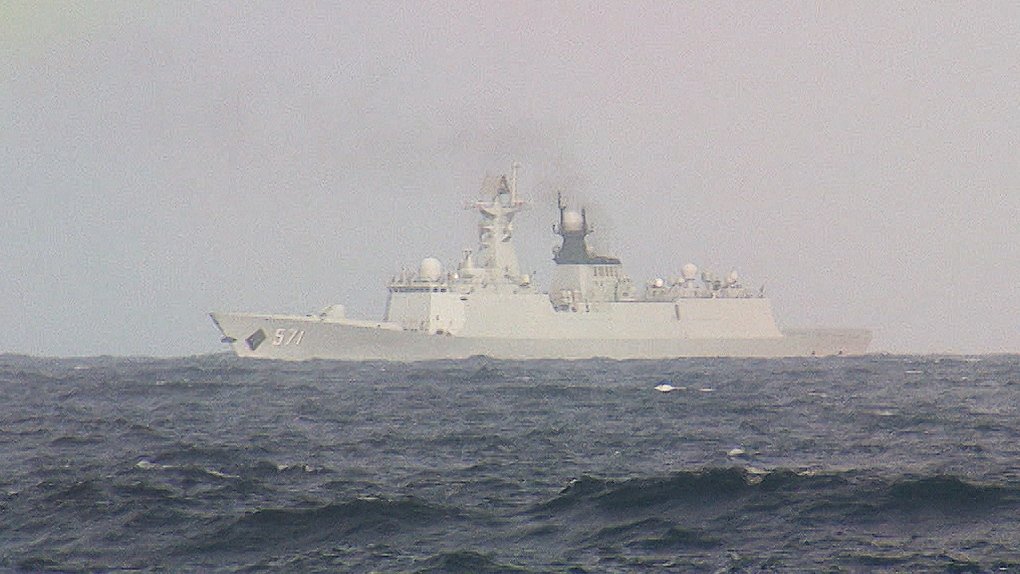Dawn on HMCS Ottawa began with a marine radio call from a Chinese warship.
“Canada Warship 341, Canada Warship 341, this is the Chinese Navy Warship.”
The call was heard across the bridge inside HMCS Ottawa and prompted commanding officer Adriano Lozar to emerge from the captain’s quarters to take the helm of his ship and respond.
The call comes from a Chinese frigate known as Yuncheng, the warship has been following HMCS Ottawa through the South China Sea for two days and counting.
After a brief pause, the call continues: “This is the Chinese Navy warship… The sea is in bad condition.”
It is a request for HMCS Ottawa to share its coordinates to ensure the safety of both ships. It is a seemingly friendly gesture and one that this Canadian Navy crew had never received before. Personnel on HMCS Ottawa believe the Chinese Navy is aware that CTV News is on board documenting this particular deployment.
The imminent presence of Chinese warships is expected. On this day, the Royal Canadian Navy travels just west of the Spratly Islands, where China has built airstrips and fully operational military bases.
China, Taiwan and Vietnam claim ownership of the islands.
HMCS Ottawa is located in the South China Sea and is participating in Operation Horizon to promote security and rules-based maritime order. Some fear that China’s militarization in these waters could give Beijing strategic influence throughout the region.
Retired Major General David Fraser believes that “what China is trying to do is rewrite the rule book, which then negatively affects the sovereignty of Taiwan, the sovereignty of the Philippines and other nations in the region.”
Fraser adds that he believes similarities can be found in Russia’s 2014 annexation of Crimea, which led to the invasion of Ukraine.
“China is seeing how far they can get away with using Russia as a proxy,” Fraser said, adding that “the Chinese have this. They will wait for the moment and the opportunity, but their aspirations have not changed. We (Canada) have to take them seriously.”
These waters hold the keys to more than just claims of military superiority: the South China Sea is home to a third of the world’s shipping and is believed to contain more than 11 billion barrels of untapped oil deep beneath its seabed.








